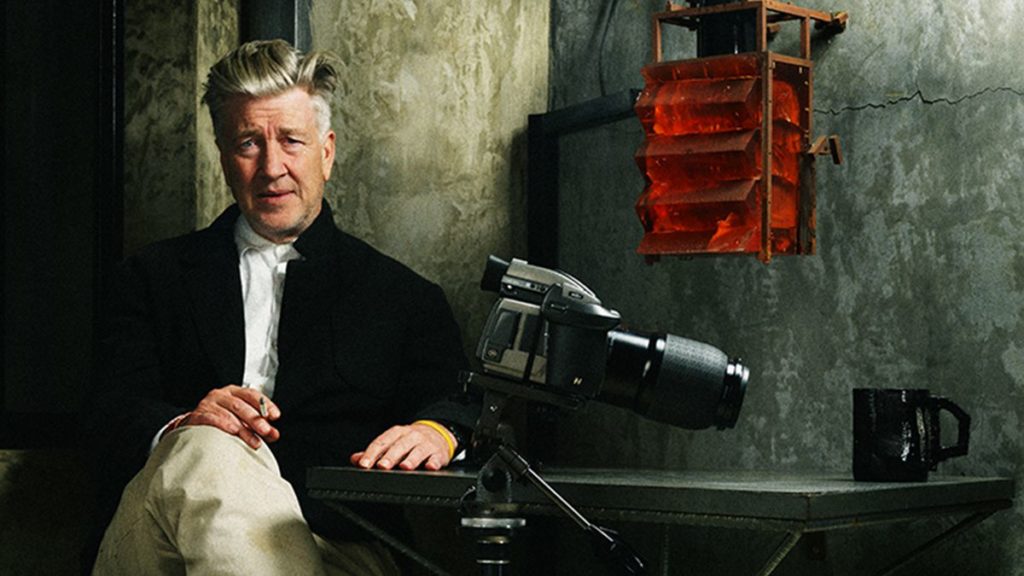Lynch recounts formative years in ‘David Lynch: The Art Life’ [MOVIE REVIEW]

Filmmaker David Lynch.
by Ryan Rojas/cinemacy.com
David Lynch may be known as a singularly unique type of filmmaker, whose films explore the oddities and anxieties of the modern American tapestry by literally physicalizing the strange and grotesque into form (or, he’s known as just a guy who makes inaccessible, incomprehensibly absurd art films). But the elusive yet celebrated film director, known for such feature films as Blue Velvet and Mulholland Drive, as well as the beloved cult TV series Twin Peaks (which is getting rebooted at HBO), is also a dedicated artist in other mediums, which a new documentary, David Lynch: The Art Life, sets out to explore.
David Lynch: The Art Life turns the spotlight on the eccentric director and lets Lynch speak candidly and freely about himself and of his younger, more formative years that led him down the artist’s path. Unprompted by another body or traditional interviewer in the film, Lynch is still left to guide the narrative and remain slightly mysterious. Photographed entirely in his secluded yet sunny Hollywood Hills home studio, it’s a treat as a viewing audience to receive this much access to Lynch in action who, while reminiscing about former years, paints and puffs on his cigarettes (Lynch smokes throughout the entirety of the doc).
Co-directors John Nguyen and Rick Barnes put Lynch in full focus in their tribute documentary (funded by Kickstarter), making him the singular face and voice to recount things like growing up in the Midwest with his loving family in a world “no bigger than a couple blocks,” to a young adolescent move to Virginia which, coupled with intestinal problems and a newly formed smoking habit, put the director into a mild depression. Lynch reminisces about the good, the bad, the traumatic, and the haunting incidents that would ultimately shape his off-tilt perspective of a peculiar and dreamlike world, in some scenes remembering in such stunningly vivid detail the traumatizing languish of a father’s shaming outburst and the haunting dream of a woman, pale and nude and confronting and confusing. All of these anecdotes and stories are fun for the viewer to try and unpack and derive meaning from, already acutely practiced at attempting to decipher the puzzle that is Lynch’s mind through his films. All of these things led Lynch to pursue what he calls “the art life,” which, as artist friend Bushnell Keeler explained to him, consists of drinking coffee, smoking cigarettes, and painting (perhaps philosophizing as well, but Lynch is seen as content to leave even that out of the mix here).
Now, how seminal is this documentary to further understand Lynch and his expressionist and confounding body of work? Those that might be looking for the director to shed a more revealing insight into his personal creative process or of any inspirations that led him to imagine such wildly evocative art will be left a little hung out to dry, as Lynch’s stories are more anecdotal than confessional or more personal than surface-level. However, for those who are fans of this mysterious figure, this documentary provides even further context in which to view and learn about this eccentric’s accomplished career.
The best part about David Lynch: The Art Life, aside from the access to see Lynch working away in his studio, is his original works of art that is featured throughout the film. We see his paintings and other original mixed media projects flurry on the screen throughout his voiceover and dialogue, which provides a further intrigue to the viewing experience. The documentary ends around the time when he got his film grant from the American Film Institute to create his career-making feature film, Eraserhead, which would lead him down a path of even further artistic and critical achievement. Even though there could have been even more gained in drawing this artist out of his own little world a bit more, David Lynch: The Art Life is a perfect model of Lynch’s artful manner and of his not-so-traditional biography.

